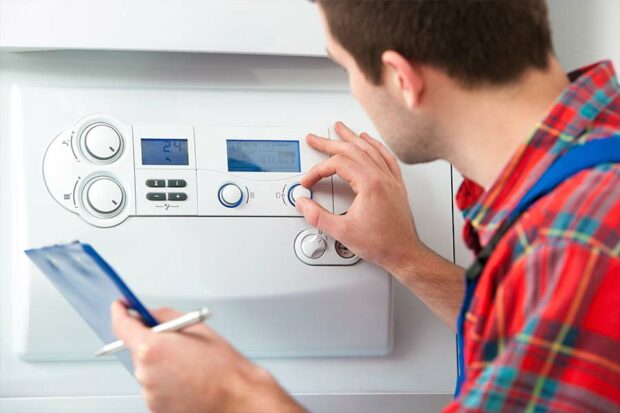When you need to replace your home’s boiler, the multitude of choices on the market can be overwhelming. Aside from choosing the right size, you also have to factor in the type that best fits your home. While it is always best to ask installers about what you need, it pays to know what you should be looking for, so you get the assurance that you are getting the right advice. Here are some things you should look out for when choosing a new boiler for your home:

1. Heating Needs
The first thing you should consider when buying a boiler for your home is that it should be appropriate for your heating needs. Going for a standard conventional water boiler will only be best if you only need to heat water. This means that you will have a limited amount of hot water that you can use. However, if you need boilers that maintain temperature, you would need a combination boiler. Combination boilers are made up of a water heater and a water boiler, which means your home will have access to hot water as soon as you turn on your tap.
If you plan to choose a combination boiler, you have to make sure that your home’s water flow and pressure are checked and that you choose the best combi boiler in the market. When these are too low, the boiler may not be as efficient in heating your home.
2. Home Size
If you have a small home, your heating requirements may not be as demanding as those who live in big and spacious homes. Combination boilers are the most popular option in the market. Since the functionality is combined, there is no need to install a separate tank. It can supply both heating and hot water with just one unit. It consumes less space in your home compared with older boiler styles.
If you plan to extend your home in the near future, as the boiler platform Heatable explains if you plan to extend your home in the near future, a boiler system that can handle additional radiators will be more beneficial. Make sure to factor this in when buying a new boiler system.
3. Energy Efficiency
Heating your home can consume a considerable amount of energy. If you are conscious about your monthly utility bills, you should go for a gas-fired condensing boiler. It is the most economical and least environmentally damaging boiler in the market today. In general, a condensing boiler may be enough to replace any current boiler in much older heating systems.
4. Controls
If you are the one who likes to have full control of your home’s heating needs, you should opt for boilers that allow you to install a heating control system. Some of the inclusions you can include are room thermostat, timer, and thermostatic radiator valves (TRVs). When you have these, you can benefit from energy efficiency by controlling what rooms will have heating, the length of time the heating system is turned on, and what temperature each room has.
5. Budget
You should also factor in your budget when choosing the right boiler system for your home. Consider the cost and the length of the warranty included in the price. In most cases, boilers will typically have a five-year warranty. It will also help you find out if the boiler type you prefer has spare parts that are easy to source, so it won’t be a burden when you need to have it repaired later on. Prices and costs associated with boiler installations and replacements will always vary, that’s why it’s important to compare boiler quotes and sort them out according to your budget and needs.
These are just some of the considerations you should think about when replacing your boiler system. If you feel that your current set-up is no longer enough to supply your heating needs, consider an upgrade.



